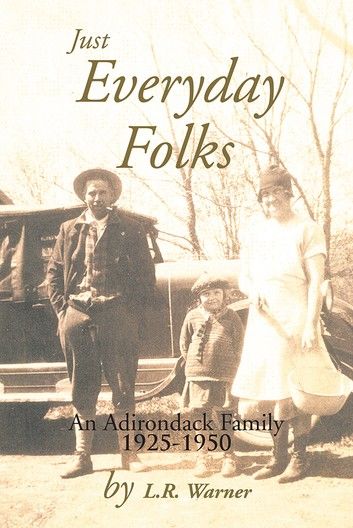In L.R. Warners latest publication, Just Everyday Folks, An Adirondack Family 1925 1950, she chronicles the life of her family living in the Adirondack Mountains of New York State during that era. Follow the story of a father who swore it was his duty as a man to make a living for his family, independent from outside help. With this belief came the idea it was his civil right to procure whatever could be gleaned from the land, regardless of environmental rules and regulations. This attitude quickly led to trouble. See a mother as a determined woman able to make do with whatever was available, and expand on any opportunity existing. Death is so very much a part of life, she told her children, conditioning them to face-up to whatever fate had in store. Two brothers age from youthful shenanigans, to walk in their fathers footsteps while learning to hunt, trap, and fish. Everyday living meant having no electricity, no indoor plumbing or centralized heating. Communication was only by snail-mail, which was often read as history by the time it was received. Babies were born at home. Illness was treated with simple remedies, often homemade. Invention was the greater part of recreation. Faith was practiced more through neighborly acts of charity than organized religion. Most holidays recognized today were treated as just another day. These subjects, and others, are written as anecdotes and smack of a life of deprivation for the family, yet as recalled by the author, We did not miss what we never expected to have. L.R. Warners former book, entitled From the Blackest Cloud, is a memorial of life after 1950 for one member of the family. With the Twenty-first Century spirit of giving back, royalties of both books are given to charity; the first to assist children with disabilities in reaching their highest potential, and the second, of Just Everyday Folks, to help brighten the days of residents at an Adirondack nursing home.











